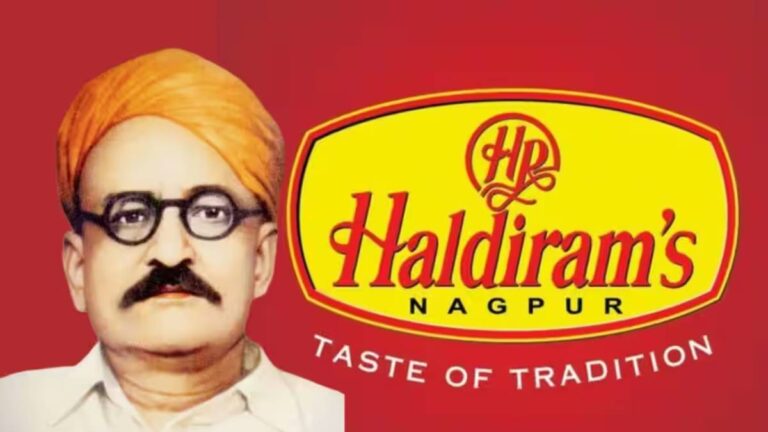In the expanding and competitive Indian food industry, Haldiram has become synonymous with success. What started as a humble sweet shop in Bikaner, Rajasthan, has transformed the perception of traditional Indian snacks and sweets and evolved into a multi-million dollar business.
Driven by the vision of offering high quality traditional Indian snacks and sweets, Haldiram embarked on a journey of transformation and gained recognition as one of India's.

Agarwal family with deep roots in the food industry

This businessman was one of the most philanthropic people in the world.He donated Rs 829,734 crore – no, it’s not Mukesh Ambani, Ratan Tata, Azim Premji or Shiv Nadar

Meet the family behind India's 17,223-crore company, home to the iconic Parle-G

Meet the man who once owned the iconic Burj Khalifa floor, luxury cars and private jets, but sold his Rs 12.4 billion company for just Rs 74.

Abu Dhabi's Al Nahyan family has surpassed Jeff Bezos and Warren Buffett to be named the world's richest family
But behind their remarkable success lies a story of family strife and acrimonious legal wrangling, most notably revolving around the coveted brand name 'Haldirams'. . Various members of the Agarwal family are embroiled in legal disputes, each seeking to assert their rights to the brand name and its associated heritage. These bitter legal battles highlight the complexity and competition within the family, where control over Haldiram's brand means not just financial value but pride and publicity.
This is the story of how the Agrawals built an empire and built the greatest empire of India.
Haldiram's story
In the picturesque city of Bikaner in Rajasthan, a young boy named Ganga Bishan Agarwal, fondly known as Haldiram, found himself absorbed in his father's Bhujia business. Bikaner, who is no stranger to Bhujia (a delicious snack made from chickpea flour or besan), witnessed the early brilliance of Haldiram's creativity. From an early age, he envisioned his own twist on the traditional bhujia, a thinner version made with moth flour instead of besan.

In 1919, Haldiram's experiment in his father's modest shop became an instant hit. The unique flavor and texture of his flour Bhujia struck a chord with the people of Bikaner and laid the foundation for his two business entities that would one day collect a combined revenue of around Rs 9,000 crore.
As Haldiram grew up, he had three sons: Moolchand, Satinarayan and Rameshwarlal. His four sons of Moolchand and their sister Saraswati Devi ushered in the family legacy, taking various snack companies to unprecedented heights.
Kolkata: 1950s
In the 1950s, Haldiram took his sons Satinarayan and Rameshwarlal to the bustling city of Kolkata. There they founded the iconic brand 'Haldiram His Bhujiawala'. Accompanying them on this adventure was Mr. Haldiram's eldest son, Mr. Shiv Kishan. While his young sons ran the original Bikaner store, the business in Kolkata grew by leaps and bounds, expanding beyond the traditional Bhusia.
rapid growth
From the 1960s to the 1990s, Haldiram's empire witnessed rapid growth and transformation. Ganga Bishan returned to Bikaner and handed over the reins to his sons Rameshwarlal and Satinarayan. However, Mr. Satinarayan chose the entrepreneurial path and founded 'Haldiram & Sons'. Unfortunately, he was not able to repeat his father's victory. At the same time, Rameshwarlal severed ties with his brother Moolchand and separated the Kolkata and Bikaner operations.
In the 1980s, Shiv Kishan Agarwal, along with his sister Saraswati, ventured into Maharashtra, especially Nagpur, and achieved remarkable success. At the same time, Mr. Moolchand's youngest sons, Mr. Manoharlal and Mr. Madhusudhan, entered his 1984 year in New Delhi and brought the brand national and international recognition. In Bikaner, Moolchand's son Shiv Ratan took charge and shaped Bikaji, which recently went public.
Prabhu and his brother, who run the Kolkata unit, have been banned from using the names 'Haldirams' or 'Haldiram' in Delhi. Haldiram's businesses currently operate as independent entities, each with its own identity. The Delhi unit, headed by Manoharlal and Madhusudan Agarwal, has emerged as the revenue leader, earning nearly Rs 5,000 crore. Shiv Kishan Agarwal-led Nagpur followed closely with Rs 4,000 crore, while Shiv Ratan Agarwal-led Bikaner collected around Rs 1,600 crore.

With Vikaji's recent IPO
Prabhu Shankar Agarwal, 56, the owner of Kolkata's famous Haldiram Bhujiawala Company, has a huge profile in the local and global business circles.
On June 5, 2005, Prabhu was taken into custody on charges of attempting to harm a tea business owner by trespassing on land in front of a food mart under construction. Today, the legacy of the Agarwal family stands tall and has left an indelible mark on the Indian food industry. Their brand name became a household favorite, and their products continue to delight millions of people across the country. Surviving legal battles and striving for business excellence, the Agarwal family remains a symbol of the tenacity and ingenuity so common among successful business families in India.


